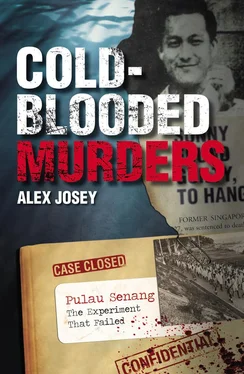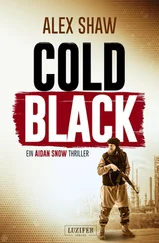Alex Josey - Cold blooded murders
Здесь есть возможность читать онлайн «Alex Josey - Cold blooded murders» весь текст электронной книги совершенно бесплатно (целиком полную версию без сокращений). В некоторых случаях можно слушать аудио, скачать через торрент в формате fb2 и присутствует краткое содержание. Жанр: Криминальный детектив, на английском языке. Описание произведения, (предисловие) а так же отзывы посетителей доступны на портале библиотеки ЛибКат.
- Название:Cold blooded murders
- Автор:
- Жанр:
- Год:неизвестен
- ISBN:нет данных
- Рейтинг книги:5 / 5. Голосов: 1
-
Избранное:Добавить в избранное
- Отзывы:
-
Ваша оценка:
- 100
- 1
- 2
- 3
- 4
- 5
Cold blooded murders: краткое содержание, описание и аннотация
Предлагаем к чтению аннотацию, описание, краткое содержание или предисловие (зависит от того, что написал сам автор книги «Cold blooded murders»). Если вы не нашли необходимую информацию о книге — напишите в комментариях, мы постараемся отыскать её.
Cold blooded murders — читать онлайн бесплатно полную книгу (весь текст) целиком
Ниже представлен текст книги, разбитый по страницам. Система сохранения места последней прочитанной страницы, позволяет с удобством читать онлайн бесплатно книгу «Cold blooded murders», без необходимости каждый раз заново искать на чём Вы остановились. Поставьте закладку, и сможете в любой момент перейти на страницу, на которой закончили чтение.
Интервал:
Закладка:
Major James emphatically denied that any detainee, or detainee’s relative, ever complained to him about being overworked. He didn’t agree they were overworked. Following talks with his staff, he felt there was no reason for the tempo of work to continue at such a pace. He was aware that they had been working extremely hard, and he wanted to tone it down. He emphatically denied that Dutton was a slave driver. He was one of the kindest men he had ever met.
James was asked if he did not agree that the violence on the island was an outburst of human intolerance.
He replied that the outburst was not personal hatred of Dutton, or revenge against Dutton. “Dutton had to be, had the misfortune to be, the living embodiment of a system affecting their lives on Pulau Senang. He represented the authority of the Singapore Government and in my opinion that holocaust was directly directed against the Singapore government and the system that detained them.” James repeated that Dutton represented a system, a better way of life to which these men-‘the scum of Singapore’- were antagonistic. They couldn’t stand a system which took them out of their unpleasant habits in Singapore.
James’ explanation of the savage riot was that the detainees knew that prison accommodation in the State of Singapore was at an absolute premium: they knew that a prison designed for 2,000 (Outram Road Prison) was being pulled down. They knew that one man, and one man alone, in the State Prison Service could build Pulau Senang. They thought that if this man, Dutton, was done away with and the place destroyed, the Singapore Government would be in an extreme difficulty to contain them.
James described the island before it became a settlement as being ‘completely virgin, with the exception of a retired lighthouse keeper who lived on the beach’.
Dutton first landed on Pulau Senang with a group of detainees on 18 May 1960. They were ferried to and fro until 1st June when the working party, selected from Changi Jail by Dutton himself, slept there for the first time. They camped just off the beach for three months, and slowly cut their way back through the virgin jungle. Button lived in a hut with his second-in-command, Jenardaran, 100 yards from the detainees.
Within four or five months, Dutton had brought over some hens and pigs.
Major James explained that after the first working batch selected by Dutton, the rest sent over to Pulau Senang were selected by the Superintendent of Prisons at Changi Prison. They were selected entirely on the length of time they had been in Changi. They would have been in Changi at least 12 months. They were sent over in batches of 30.
Nothing had been fixed as to how long they had to stay on the island. On an average, a man would be there for between 12–18 months before his name went to a Review Board to see whether his ‘conduct and industry’ were of a nature which would enable the Board to consider release. Major James was the chairman of the Board. The Board sat every month and Button had instructions to submit 30 names for consideration every month. Dutton would be present at the meeting and discuss the man’s record. The police had the final say on who would be released. Many names were put on the list eight or nine times before the Board would agree to let them go. This recommendation would then go to the Minister for Home Affairs. If he agreed, then the man would be sent to the Work Brigade Camp at Jalan Bamai (on Singapore Island) where he would work for six months, and then set free. But if he managed to get a job with an employer after three months, he could go without delay.
If a detainee infringed the rules of conduct at Pulau Senang he would be sent back to Changi Jail, where he would serve six months, and forfeit the period of time he had spent on Pulau Senang.
Pulau Senang was an open prison in the fullest sense of the word. Detainees were told if they went to Pulau Senang, they would have to work, it was not a picnic holiday camp. It they did not want to go they could stay in Changi where their chances of release were, as Major James told the Court, ‘negligible’. But, explained Major James, if a detainee at Pulau Senang ‘kept his nose clean and worked hard’, he had an almost certain chance of getting released. Mr Ball: Was it a fact that a prisoner did have the sure knowledge that he could, by his own efforts, obtain his release? Or could the police overrule that?
Major James said he had no doubts about it, whatsoever. So long as a man behaved and worked hard, his chances of release from Pulau Senang were almost a certainty. But, he added, the police had to be watchful. If kidnapping was prevalent in Singapore (as it then was), the police could be most reluctant to allow a known kidnapper to be released at that time. He might be tempted to revert to his old ways again.
Major James admitted that the Ministry of Education had been unable to send any teachers to Pulau Senang; there were no organised recreational facilities, and entertainers (a mixed troupe of men and women) had called at the island once. He said they got so seasick they never came back.
At first, detainees were paid $0.10 a day, and then $0.30.
In March 1961, Major James wrote to Dutton about the hours the men were working. He told him that the settlement had reached a stage of development where the pace would have to be slackened a bit. In April 1963, he wrote to him again and laid down the hours the detainees were to work.
Dutton kept to this scheme for a time when he became very enthusiastic about certain buildings, when he increased them again. The first letter read (dated 6 March 1961): I feel the time has come for you to introduce a scale of work at Pulau Senang. I suggest 7:30 AM to 12:30 PM with your usual mid-morning break, and from 2:30 PM to 5:00 PM for weekdays and from 7:30 AM to 12:30 PM on Saturdays and Sundays, and thereafter the detainees are free for recreational and educational activities.
The second letter was dated 22 April 1963 and was an instruction. It read: With effect from receipt of this order, the hours of work of detainees at Pulau Senang will be as follows: Weekdays 7:30 AM to 11:00 AM 12:30 PM to 4:00 PM Sundays 7:30 AM to 11:30 AM
Criminal law detainees will not work on Saturday afternoons or public holidays but will have normal maintenance tasks. It may be necessary for certain projects, such as the jetty, which depends upon tides, for them to work outside these hours. They will be given compensating time for extra hours worked. No detainee will exceed a 44-hour week without the written authority of the Director of Prisons.
On 9 July, 1963, 13 detainees, all carpenters, were sent by Dutton back to Changi Jail. Major James promptly summoned Dutton to his office and asked him why. Dutton explained that on the Saturday afternoon these men had refused to work on an urgent job at the end of the jetty.
A defence counsel asked Major James whether it was true that men had been ordered to work in the rain without raincoats. Major James: I can only answer you by saying that at Pulau Senang I have seen men working in the rain practically nude, which would be their normal way of working in the rain outside Changi Prison. Working in the rain in these circumstances on a tropical island could on occasions be heavenly.
Major James said that he told Dutton to select as the first batch ‘what you can find in the way of masons, brick-layers, tradesmen’. They were told that if they were selected they would have to work hard. There were more volunteers than room on the island.
James admitted that prior to 6 March 1961, the detainees worked 12 hours a day. They were then paid $0.10 a day.
Major James said that in April 1963, he sent Dutton a letter. This was because there had been trouble over working on a Saturday afternoon. An attendant, a former detainee, had been attacked by detainees with cangkuls, James said he had to call out the Reserve Unit. The row started when a settlement attendant warned a detainee about an offence. The detainees’ story was that they had been working all night, and they had asked the attendant for water which he had refused to give them. Major James said this story was untrue: they had not been working all night.
Читать дальшеИнтервал:
Закладка:
Похожие книги на «Cold blooded murders»
Представляем Вашему вниманию похожие книги на «Cold blooded murders» списком для выбора. Мы отобрали схожую по названию и смыслу литературу в надежде предоставить читателям больше вариантов отыскать новые, интересные, ещё непрочитанные произведения.
Обсуждение, отзывы о книге «Cold blooded murders» и просто собственные мнения читателей. Оставьте ваши комментарии, напишите, что Вы думаете о произведении, его смысле или главных героях. Укажите что конкретно понравилось, а что нет, и почему Вы так считаете.












